World
Out in the World: LGBTQ news from Europe and Asia
South Korea court upheld criminalization of same-sex relations in the military

South Korea
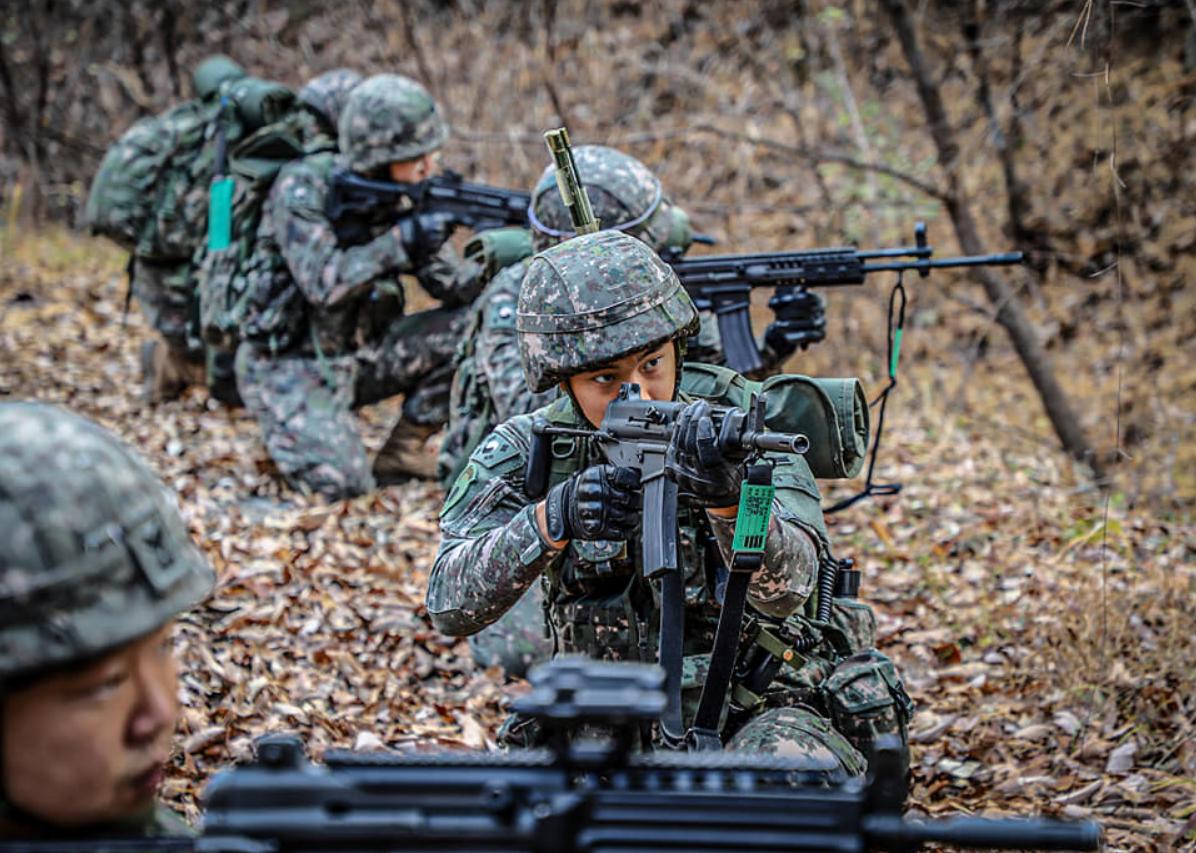
This past week on Oct. 27, the second highest court in South Korea upheld an earlier ruling for the fourth time, the Military Criminal Act, that criminalizes same-sex relations in the military.
The Constitutional Court of South Korea, in a 5-4 vote, ruled that article 92-6 of the military criminal act was constitutional. Justices in their ruling stated that same-sex activities might undermine discipline and harm the combat capabilities of the military. Same-sex activities between civilians however, is not a crime.
Article 92-6 of the Military Criminal Act (“Article 92-6”) provides that a person who commits anal intercourse or any other indecent act with “a military person” shall be punished by imprisonment for not more than two years.
Human rights activists have noted that the South Korean military has invoked Article 92-6 to punish sexual acts between male servicemen with sentences of up to two years in prison — regardless of whether the acts were consensual or whether they happened within or outside of military facilities.
Several of South Korea’s allies including the U.S. and the U.K. have repealed provisions similar to Article 92-6 of the Military Act of South Korea in order to align with international obligations to protect against the discrimination of LGBTQ people.
The executive director of the Center for Military Human Rights Korea, which provides legal assistance to soldiers including those accused of breaking the anti-sodomy law, Lim Tae-hoon said the decision was “absurd, illogical, regressive and driven by prejudice.
“While the world has been making progress in abolishing discrimination against minorities over the past 20 years, the minds of the judges have not advanced even a single step,” he added.
Lim pointed out that: “this law can be abused at any time to harass many sexual minority soldiers due to their sexual orientation. In addition, among the constitutional appeal cases supported by the Military Sexual Violence Counseling Center affiliated with the Military Human Rights Center, there is one case in which the military prosecutors believed the words of the perpetrator of same-sex sexual violence and suspended indictment by claiming that the sexual intercourse was consensual with the victim.
“The perpetrator was sentenced to three years in prison by the final ruling of the Supreme Court and is currently serving his sentence. Constitutional Court judges argue that the law of indecent assault should remain in place to protect victims of same-sex sexual violence in the military, but in reality, it is being abused as a means of imprisoning and punishing victims. Without understanding how the world works or how the law operates, they were caught up in prejudice and stubbornness and made regressive decisions.”
Japan
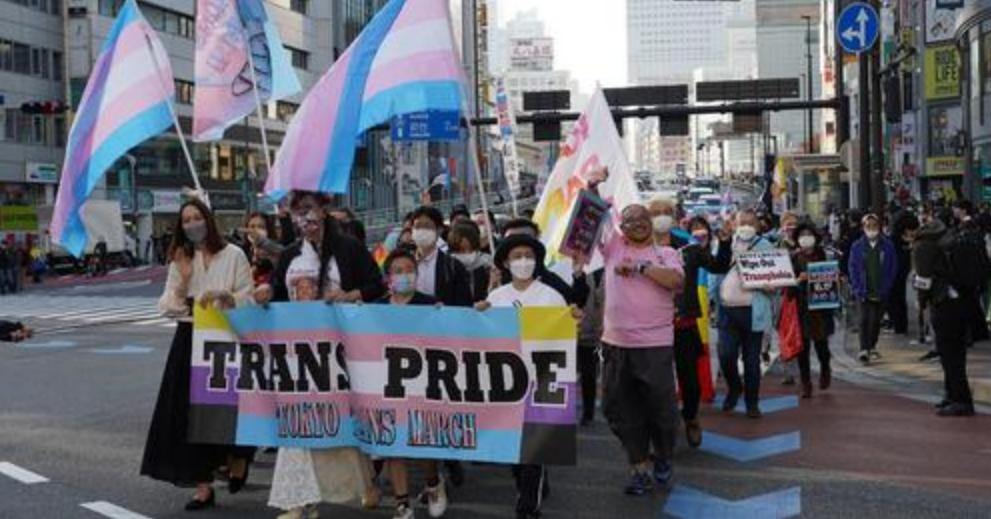
Last week on Oct. 25, Japan’s highest court ruled in a unanimous decision that the country’s law mandating sterilization surgery for transgender people as a requirement for legal gender recognition was unconstitutional.
In the ruling, the 15 justices wrote: “Being forced to undergo sterilization surgery … constitutes a significant constraint on freedom from invasive procedures” in violation of the Japanese Constitution.
Human Rights Watch Japanese Director Kanae Doi noted that since 2004, trans people in Japan who want to legally change their gender must appeal to a family court. Under the Gender Identity Disorder Special Cases Act, applicants must undergo a psychiatric evaluation, be surgically sterilized, and “have a physical form that is endowed with genitalia that closely resemble the physical form of an alternative gender.” They also must be single and without children who are younger than 18.
In May 2023, the Supreme Court ruled in favor of the right of a trans woman government employee to use the restrooms in accordance with her gender identity. In November 2022, the government in Japan’s Kanagawa prefecture awarded another trans woman workplace compensation after recognizing her depression was the result of harassment she faced from her supervisor.
Earlier this month, a local family court ruled in favor of a trans man, Gen Suzuki, who requested to have his gender legally changed without undergoing the surgery, the BBC reported.
The family court judge, Takehiro Sekiguchi, said the current law violated Article 13 of the constitution that stipulates all people shall be respected as individuals.
According to the Japanese government’s statistics, sexual minorities (LGBTQ) make up for 3 to 8 percent of the population and that at most, the statistics estimate that around 0.7 percent of the population is trans.
They are an overwhelming minority. The overwhelming majority of people do not know about trans people, and various prejudices are widespread.
The “LGBT Understanding Promotion Act,” which was passed by the Japanese Parliament in June 2023, includes the sentence “we will take care to ensure that all citizens can live their lives with peace of mind,” but according to Japanese trans activist Aya Nishida, the background to this is “If you say you are a woman at heart, you are a man. This is because some people have discriminatory views such as, “If transgender people’s human rights are recognized, women’s human rights will be threatened.”
Nishida provides training on the human rights of trans people to local governments, about issues surrounding trans people.
While the Supreme Court has ruled against the sterilization requirement, it has asked a lower court to review the requirement to have “genitalia that closely resemble the physical form of an alternative gender.”
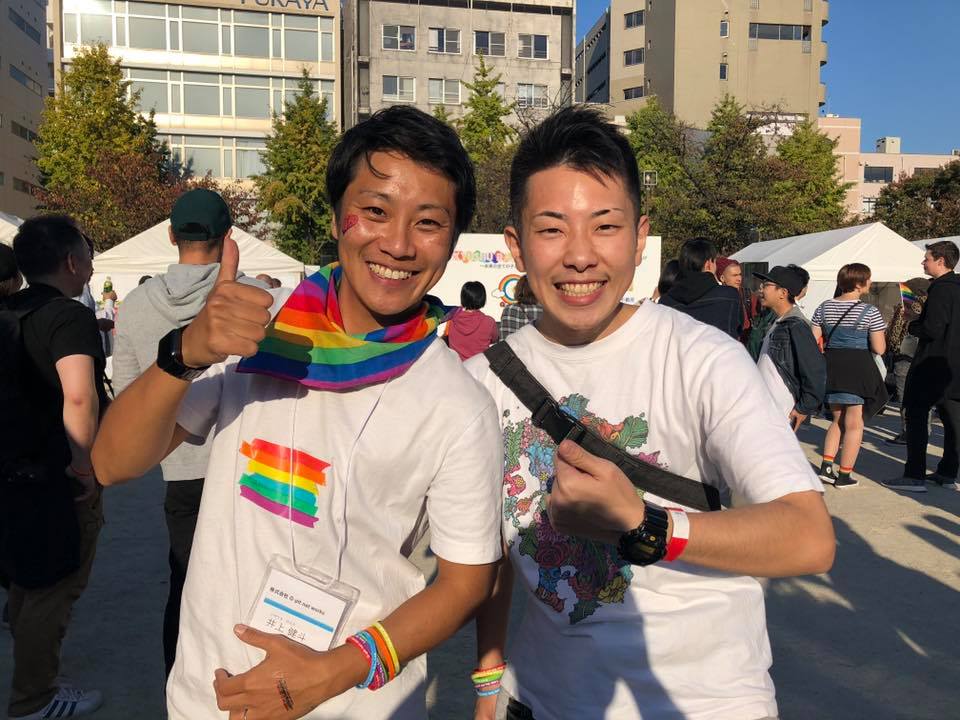
As of Oct. 1, 26 local governments in at least 12 prefectures across the country have enacted ordinances that codifies the prohibition of “outing,” which is the act of disclosing a person’s sexual orientation or gender identity without their consent.
According to a study conducted by the Research Institute of Local Government in Tokyo, these efforts highlights that some municipalities have made to protect the human rights of LGBTQ people since passage of the Act to Promote Understanding of LGBT and Other Sexual Minorities by Parliament this past June. That does not explicitly prohibit acts such as outing.
According to human rights groups and LGBTQ advocacy organizations, outing constitutes a serious human rights violation and it was defined as a form of abuse of power in the guidelines for legislation.
The Kyodo News reported that in July this year, it was disclosed that a man had been deemed eligible for compensation from his employer by a Tokyo labor office last year after his boss revealed he was gay without his consent, but the current law is limited in scope to the workplace.
The harmful consequences of outing hit the national consciousness in 2015, when a graduate student of Hitotsubashi University in Tokyo died after plunging from a school building in an apparent suicide after being outed as gay.
In the wake of that incident, the city of Kunitachi, which hosts the university, became the first local government to enforce an ordinance banning the outing of LGBTQ people in April 2018.
In a statement to media outlets in Japan, Yuichi Kamiya, the executive director of the LGBT Law Federation said:
“Outing is considered harassment and must be prevented in the workplace, but there are no laws in place for other settings such as schools and medical care, so it is difficult to know what constitutes it and what specific details are required. There is still not widespread understanding of how to respond.
It is important to clearly state the prohibition in ordinances, and it can also lead to public awareness, prevention and relief in the event of damage. The more discriminatory the environment surrounding the person concerned, the greater the impact of outing. Further awareness is needed in each field to prevent further damage. When someone comes out, the first thing you should do is ask them who they can talk about and how much they can talk about. If you have any concerns, please consult with a specialist who respects confidentiality obligations.”
Currently, none of the ordinances passed across Japan have criminal law penalties.
Hungary

The far-right anti-LGBTQ government of Hungarian Prime Minister Viktor Orbán has banned children under the age of 18 from visiting the World Press Photo exhibition Hungarian National Museum in Budapest, citing LGBTQ content in some of the photos.
Since taking power, Orbán and his ruling party have waged an unceasing campaign to restrict the rights of LGBTQ Hungarians. In July 2021, the government passed a law that bans the promotion of homosexuality and sex-reassignment surgery to minors in the country.
This past summer Hungary’s second-largest bookstore chain was fined for violating the 2021 law that limits the access of minors to books, media content and advertisements that “promotes or portrays” the so-called “divergence from self-identity corresponding to sex at birth, sex change or homosexuality.”
The chain was fined for selling copies of British author Alice Oseman’s LGBTQ graphic novel series “Heartstopper,” a global phenomena due to the runaway hit Netflix show based on her books in the series.
According to the interpretation of the Háttér Society, a Hungarian organization focused on LGBTQ rights, a parent could break the law solely by buying a child a young adult novel that features an LGBTQ character.
Reuters reported that this past Saturday, the museum stopped selling tickets for the photo exhibition for youngsters after the far-right Our Homeland party had initiated a government inquiry, the party said.
“Based on the initiative of Mi Hazank, youngsters under 18 cannot visit the exhibition at the National Museum as it violates the child protection law,” the far-right party told state news agency MTI. The new rule was posted on the museum’s website later on Saturday.
Neither the museum nor the Our Homeland party responded to requests for comment.
The Vatican
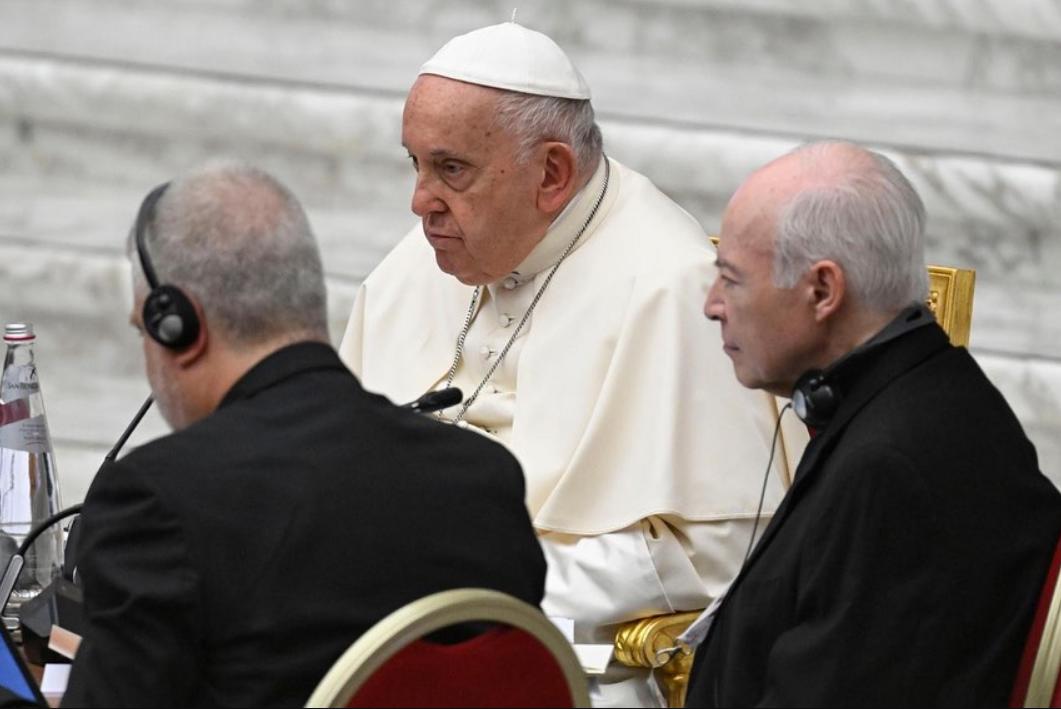
The month-long conference held in the Paul VI Hall at the Vatican regarding the future of the world-wide Roman Catholic Church ended on Saturday, without a clear course of action for the church on the issues of ordaining women as deacons or the treatment and care for its LGBTQ members.
The gathering, known as a Synod of Bishops, followed an unprecedented two-year canvassing of rank-and-file Catholics. The 365 synod participants included 300 bishops along with lay men and about 50 women who were mostly lay people, Reuters reported.
At the synod, the pope gave women and lay people a vote on church affairs for the first time. The participants meet for a final session in a year, then the pope will write a document on issues facing the church.
A 41-page report, approved and published Saturday at the close of the conference, called for the results of earlier papal and theological commissions on women deacons to be presented for further consideration at the next assembly of the Synod of Bishops, to be held in October 2024.
The report, titled “A synodal church in mission,” did not take a stand on LGBTQ issues despite discussion beforehand that the synod might call on the church to be more welcoming to the LGBTQ community, Reuters reported.
During a press briefing after the publication of the final report, Cardinal Mario Grech, who heads the Vatican’s synod office, on a question regarding LGBTQ Catholics, said that the assembly felt a need to “respect everyone’s pace.” He added: “It doesn’t mean if your voice is stronger it will prevail.”
Jesuit Fr. James Martin, a popular spiritual author and editor of the LGBTQ Catholic publication Outreach who took part in the synod as a voting member, told the National Catholic Reporter he was “disappointed but not surprised” by the result for LGBTQ Catholics.
“There were widely diverging views on the topic,” said Martin. “I wish, however, that some of those discussions, which were frank and open, had been captured in the final synthesis.”
United Kingdom
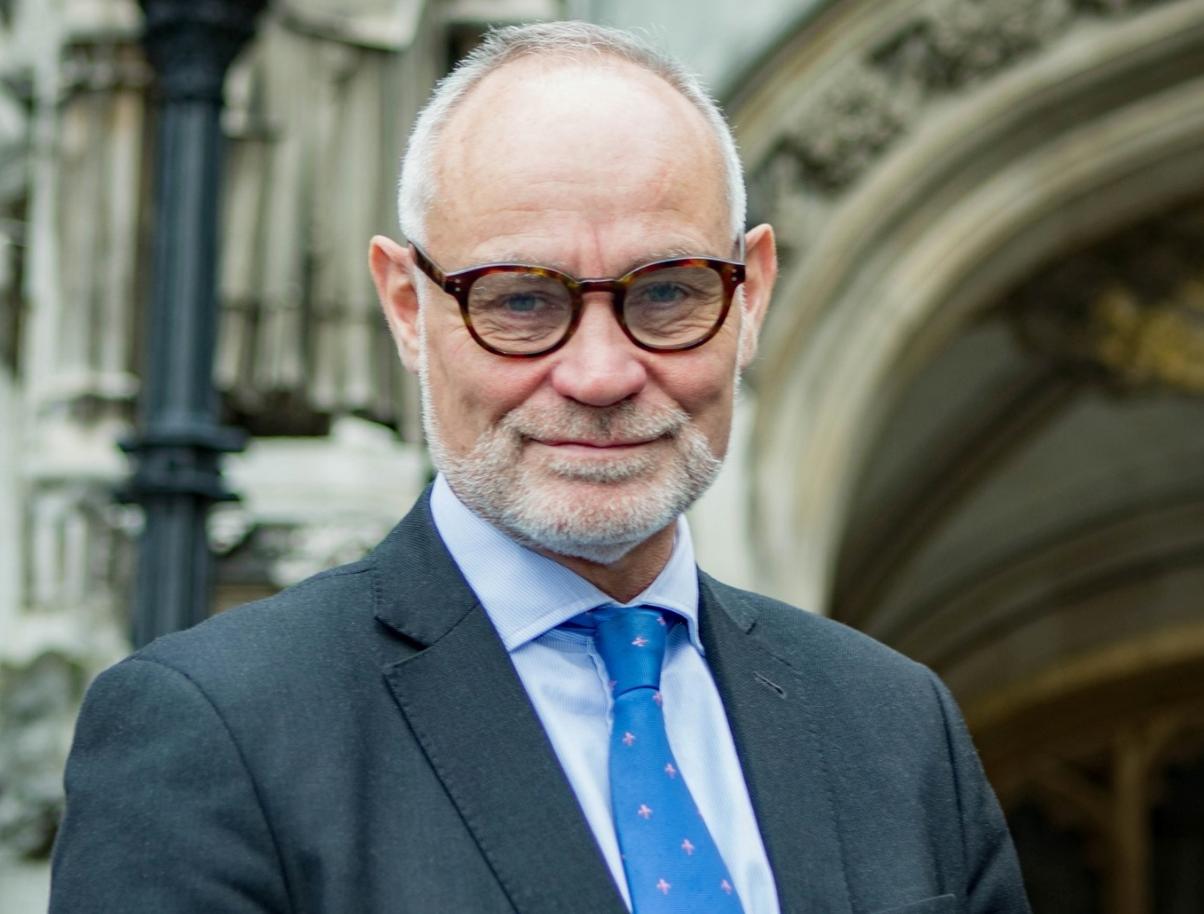
Crispin Blunt, the openly gay Conservative MP for Reigate was arrested in connection with an allegation of rape and possession of a controlled substance earlier this month at his home in Horley by the Surrey Police.
Blunt, served for two years as a justice minister and two years as chair of the Foreign Affairs Committee in the House of Commons, publicly came out as gay in 2010, announcing that he had separated from his wife and was “coming to terms with his homosexuality.”
British media outlet The Telegraph reported Blunt claimed in a statement that Surrey Police had begun an investigation three weeks ago when he reported “concerns over extortion.” The Conservative Party confirmed on Thursday night the 63-year-old has been stripped of the party designation, effectively meaning he has been expelled from the Conservative Party. He will now sit in the House of Commons in Parliament as an Independent member.
Taking to X, formerly Twitter, Blunt posted a statement saying, “The fact of the arrest requires a formal notification of the speaker and then my chief whip.
I have now been interviewed twice in connection with this incident, the first time three weeks ago, when I initially reported my concern over extortion. The second time was earlier this morning under caution following arrest.”
“The arrest was unnecessary as I remain ready to cooperate fully with the investigation that I am confident will end without charge,” Blunt continued. “I do not intend to say anything further on this matter until the police have completed their inquiries,” he added.
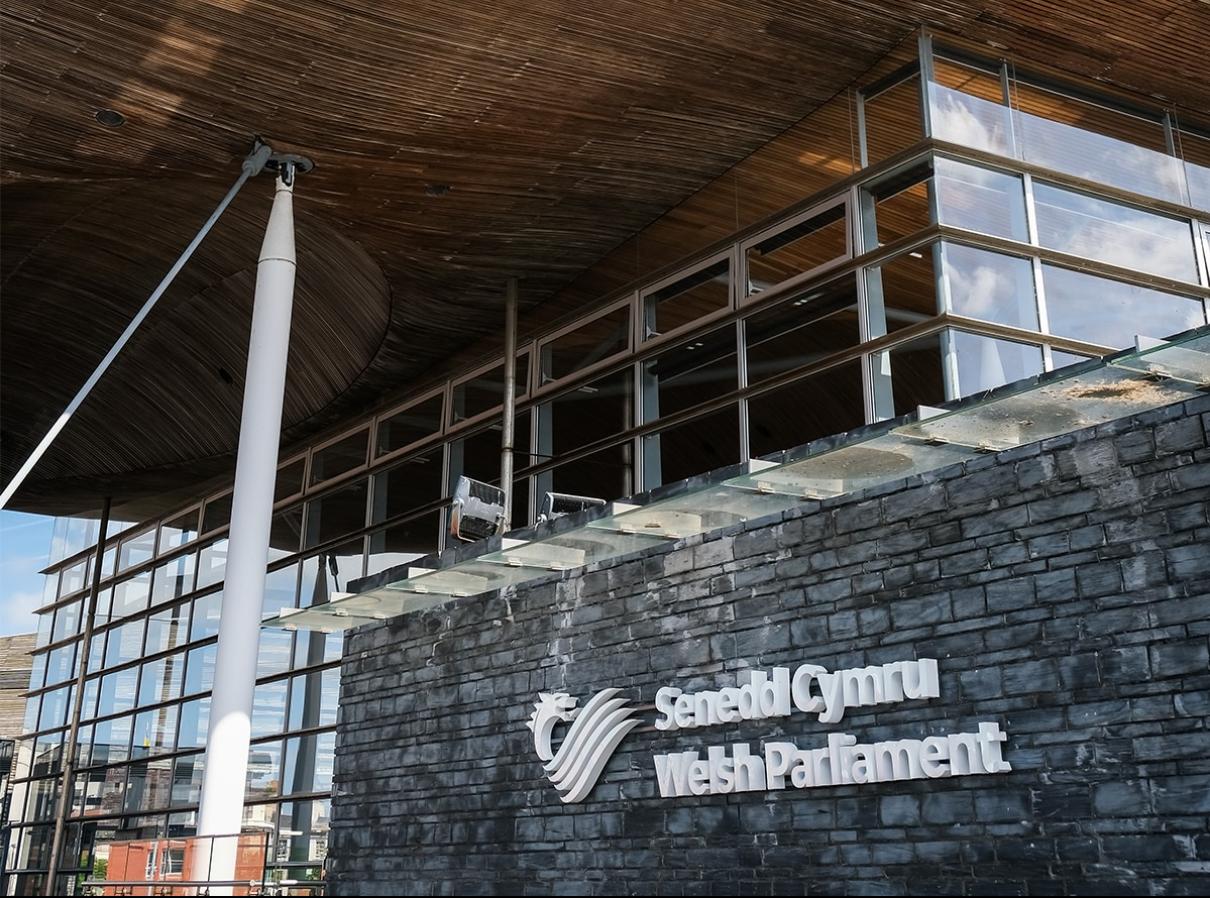
The Welsh government appears to be setting itself on a potential collision course with Prime Minister Rishi Sunak’s government after the leak of a draft of the Welsh government’s Gender Quotas Bill Sunday evening, which would allow people to self-identify their gender when running for the Welsh Parliament.
The Telegraph reported that the bill proposes plans for a gender-balanced Parliament by having set equal quotas for male and female political candidates. Under this draft bill, the definition of a woman will be updated, so that the female quota of party candidates running for office may include trans women.
The definition further stated that trans meant “a person who is proposing to undergo, is undergoing or has undergone a process (or part of a process) for the purpose of reassigning [their] sex to female by changing physiological or other attributes of sex.”
Reaction from transphobic opponents included an outspoken “gender critical” leader, Cathy Larkman from Women’s Rights Network Wales, who said in an emailed statement:
“We know from bitter experience that Welsh government is not listening to the concerns of women in Wales. We, along with other groups, have been shut out time and again. Unfortunately, the reasons for this are now apparent.
The government is now intent on driving a highly contested ideological agenda and this is clearly their first step. It is astonishing that the government is spending public funds and using a Gender Quotas Bill to promote an agenda which undermines the rights of half the population of Wales.
It is shameful that they are high-jacking legislation that should benefit women and increase female participation in political life, to embed a toxic and misogynistic ideology. We believe that the intention of the Welsh government is to introduce gender self-identification and put it on a statutory footing.
We believe this is the first step towards a full self-ID bill which would have serious implications for women and girls in particular as it would impact on single-sex services and spaces such as changing rooms, intimate care, hospital wards and domestic violence services.
It is unforgivable that the first minister and his government, aided and abetted by Plaid Cymru [a political party] intend to betray the women of Wales in this underhand way.”
PinkNewsUK noted that this bill echoes a similar plan put forward by the Scottish government in January that would have made it easier for people to legally change their gender, which was blocked by the UK government.
The leak has had a mixed response from the public. While the trans community and its advocates are pleased with the progressive step forward, anti-trans hate groups and so-called women’s rights groups are up in arms.
Commenting on the leaked bill, a spokesperson for the Welsh government told the Telegraph that it did not represent the latest version of the Gender Quotas Bill, though they did not say whether that had to do with the redefinition of women.
“Our proposed model for quotas is designed to maximize the chances of achieving a Senedd comprised of at least 50 percent women. Work is ongoing on the bill,” said the spokesperson.
The first minister of Wales, Mark Drakeford, has been a longtime defender of trans rights, and has repeatedly shared his pro-trans beliefs in Parliament, PinkNewsUK also reported.
Additional reporting by the Kyodo News, the BBC, Reuters, Agence France-Presse, the Telegraph and PinkNewsUK
European Union
European Parliament resolution backs ‘full recognition of trans women as women’
Non-binding document outlines UN Commission on the Status of Women priorities

The European Parliament on Feb. 12 adopted a transgender-inclusive resolution ahead of next month’s U.N. Commission on the Status of Women meeting.
The resolution, which details the European Union’s priorities ahead of the meeting, specifically calls for “the full recognition of trans women as women.”
“Their inclusion is essential for the effectiveness of any gender-equality and anti-violence policies; call for recognition of and equal access for trans women to protection and support services,” reads the resolution that Erin in the Morning details.
The resolution, which is non-binding, passed by a 340-141 vote margin. Sixty-eight MPs abstained.
The commission will meet in New York from March 10-21.
A sweeping executive order that President Donald Trump signed shortly after he took office for a second time on Jan. 20, 2025, said the federal government’s “official policy” is “there are only two genders, male and female.” The Trump-Vance administration has withdrawn the U.S. from the U.N. LGBTI Core Group, a group of U.N. member states that have pledged to support LGBTQ and intersex rights, and dozens of other U.N. entities.
India
Trans students not included in new India University Grants Commission equity rules
Supreme Court on Jan. 29 delayed implementation

The University Grants Commission is a regulatory body under India’s Education Ministry that is responsible for coordinating and maintaining standards in higher education. The University Grants Commission Equity Regulations, 2026, aim to address discrimination and promote the inclusion of lower castes, tribes, people with disabilities, those who are economically disadvantaged, and other marginalized groups in higher education.
The regulations quickly triggered controversy.
Students, faculty and civil society groups criticized them, largely around concerns about potential discrimination against students and the absence of certain procedural safeguards. Yet, even as the debate intensified, there was little public discussion about the lack of explicit mention of transgender students in the framework. The omission, though not central to the overall controversy, raised questions among some advocates about the scope of the regulations and who they ultimately protect.
According to the All India Survey on Higher Education, trans student enrollment in universities and colleges rose from 302 in the 2020-2021 academic year to 1,448 in the 2022-2023 academic year, reflecting a sharp increase but still representing a very small share of India’s overall higher education population.
The Supreme Court in its 2024 National Legal Services Authority v. Union of India affirmed trans people are entitled to full constitutional protection, including equality, dignity and access to education, and directed governments to treat them as a socially and educationally disadvantaged group eligible for quota-based protections in education and public employment. The ruling recognized gender identity as integral to personal autonomy and held that discrimination on this ground violates fundamental rights under Articles 14, 15, 16, and 21.
Against this legal backdrop, the regulations do not explicitly reference trans students, an omission that has drawn attention in discussions on how constitutional protections are implemented within higher education institutions.
In the Indian constitutional framework, Articles 14, 15, 16, and 21 collectively form the foundation of equality and personal liberty.
Article 14 guarantees equality before the law and equal protection of laws; Article 15 prohibits discrimination on grounds such as religion, race, caste, sex or place of birth; Article 16 ensures equality of opportunity in public employment; and Article 21 protects the right to life and personal liberty, which courts have interpreted to include dignity, autonomy, and access to education. These provisions underpin judicial recognition of protections for marginalized communities, including trans people, within public institutions.
Judicial and policy frameworks in India have increasingly recognized the need for institutional support for trans students, underscoring the contrast with the absence of explicit mention in the University Grants Commission Equity Regulations, 2026, regulations.
The Madras High Court has directed educational institutions to implement measures such as gender-neutral restrooms, mechanisms to update name and gender in official records, inclusion of trans identities in application forms and the appointment of LGBTQ-inclusive counselors for grievance redressal alongside enforcement of the Transgender Persons (Protection of Rights) Act and its Rules.
Policy instruments have echoed similar priorities.
The National Youth Policy 2014 acknowledged trans youth as a group facing social stigma and called for targeted interventions, while the National Education Policy 2020 emphasized reducing dropout rates and ensuring equitable access to education. The University Grants Commission itself has previously indicated that universities should adopt affirmative steps and institution-specific plans to support trans people, making their absence from the current regulatory text more pronounced.
Research and policy analyses have consistently documented structural barriers faced by trans students in India’s education system. The Center for Development Policy and Practices and other academic studies note that discrimination, bullying, and the absence of gender-sensitive infrastructure contribute to high dropout risks among trans students in both school and higher education. Census data underscore this disparity.
The 2011 Census recorded a literacy rate of about 56.1 percent among trans people, significantly lower than the national average of roughly 74 percent, reflecting long-standing barriers to access and retention in formal education.
The controversy intensified after the Supreme Court on Jan. 29 stayed the implementation of the University Grants Commission Equity Regulations, 2026, and agreed to examine their constitutional validity.
A bench led by Chief Justice Surya Kant observed the regulations raised serious legal questions, including concerns that some provisions appeared vague and potentially open to misuse, and sought responses from the federal government and the University Grants Commission. The court directed that the earlier 2012 anti-discrimination framework would remain in force in the interim and listed the matter for further hearing, signalling the need for detailed judicial scrutiny.
Public and political reactions followed, with student groups, academics, and political actors divided over the stay and the broader policy direction. The federal government, led by Prime Minister Narendra Modi, maintained the regulations were intended to address caste-based discrimination and strengthen accountability within higher education institutions even as debate intensified nationally.
The regulations go beyond paperwork. They require universities to create on-campus equity monitoring teams and designated officers responsible for identifying incidents of discrimination, receiving complaints and reporting them to institutional committees for action. However, while the framework spells out protections for certain caste and social categories, it does not explicitly include trans students within this structure. In practice, that absence could leave uncertainty about whether routine monitoring, reporting and grievance mechanisms would extend to them with the same clarity, particularly in campuses where implementation already varies widely.
The regulations also prescribe penalties for faculty and staff found responsible for discrimination, including suspension, withholding of promotions, or termination of service following institutional inquiry. For students, disciplinary action may range from warnings to suspension depending on the severity of the misconduct. Where an incident amounts to a violation of existing statutory or criminal law, institutions are required to refer the matter to law enforcement authorities, placing responsibility on universities to escalate cases beyond internal mechanisms when warranted.
The regulations do not create new criminal offences but require institutions to escalate cases to law enforcement when conduct violates existing statutes. These may include the Scheduled Castes and Scheduled Tribes (Prevention of Atrocities) Act, relevant provisions of the country’s penal code, such as criminal intimidation, assault or sexual harassment, disability rights protections, workplace harassment laws, and statutes addressing campus hazing. The framework is therefore stringent: campus inquiries can lead to disciplinary action, and, where legal thresholds are met, mandatory reporting to police. In the absence of explicit mention of trans students within the framework, questions remain about how individuals from the community would navigate complaint systems, interact with authorities, and access consistent institutional protections under these processes.
The Scheduled Castes and Scheduled Tribes (Prevention of Atrocities) Act, 1989 is among India’s strictest anti-discrimination criminal laws and applies to students, staff and any individual accused of caste-based offences. It criminalizes acts such as intentional insults or humiliation, social exclusion, threats, physical assault and other forms of harassment directed at members of specific castes or tribes. Offenses under the law can lead to arrest, non-bailable charges in several categories, and imprisonment that may extend from months to years depending on the severity of the conduct, along with fines. The law also restricts anticipatory bail in many cases and mandates prompt registration of complaints, which is why it is often viewed as a powerful legal safeguard for marginalized communities while also being regarded by some as carrying serious legal consequences once invoked.
Nishikant Dubey, a member of India’s ruling Bharatiya Jana Party, welcomed the Supreme Court’s decision to stay the regulations, stating the judges had acted appropriately and that the matter required careful legal scrutiny. Indrani Chakraborty, an LGBTQ rights activist and mother of a trans woman, told the Washington Blade the University Grants Commission Equity Regulations, 2026, is a welcome step toward supporting vulnerable students.
“The saddest part is that the transgender community is excluded which is very unfair,” said Chakraborty. “Presently, the transgender community is the most vulnerable and not mentioning the community in the act. I regard it as the biggest discrimination and will never help in changing the scenario of the transgender students.”
Chakraborty told the Blade the trans community, as a minority facing persistent social stigma and taboo, is often overlooked and must repeatedly advocate even for basic rights.
“I believe that grouping of individuals under caste, religion, gender, etc., is the base of discrimination. Personally, I disagree with naming and tagging any individual. Equity over equality is the need now for the most vulnerable. And the transgender community faces discrimination the most. Discrimination against any individual in educational institutions needs immediate attention and preventive measures should be necessarily implemented.”
Chakraborty said the absence of explicit inclusion of trans students amounts to discrimination, undermining equality in education and violating human dignity.
Ankit Bhupatani, a global diversity, equity and inclusion leader and LGBTQ activist, told the Blade that debate around the University Grants Commission Equity Regulations, 2026, has largely centered on concerns raised by relatively privileged students, particularly those in the unreserved category, while communities with limited visibility in higher education have received far less attention. Bhupatani also referenced the All India Survey on Higher Education statistics.
“According to Queerbeat, more than half of these 1,448 students are clustered in a few states and several large states still report almost no transgender students at all. Any serious equity regime has to guard every individual, including upper-caste students who are unfairly targeted or stereotyped , but the public conversation cannot pretend this tiny, highly vulnerable group does not exist,” said Bhupatani. “When outrage dominates headlines and the most marginalized are barely mentioned, the word ‘equity’ starts to lose meaning.”
Bhupatani told the Blade that the University Grants Commission Equity Regulations, 2026, define gender to include the “third gender” and prohibit discrimination on that basis, but then repeatedly identify lower castes, tribes, economically disadvantaged groups, people with disabilities, and women as specific groups, while trans students and teachers are not explicitly listed. Bhupatani said that for a young trans person reading the regulations, the message can feel indirect — that others are clearly recognized while their protections depend on interpretation. He added that explicitly naming trans people as a protected group would not dilute safeguards for others, but would instead ensure those already facing stigma are not left to seek recognition case by case.
“Transgender people sit at the intersection of legal vulnerability and social prejudice, so if they are not named and centered in large regulatory exercises, they quickly disappear from view,” said Bhupatani. “Campus rules need to start with a simple moral intuition. No one, whether Dalit or Brahmin, trans or cis, rich or poor, should be harassed, excluded or denied opportunity because of who they are. The University Grants Commission (Promotion of Equity in Higher Education Institutions) Regulations, 2026 already move in this direction by defining discrimination broadly for all students and staff and by listing grounds such as caste, gender, religion, disability, and place of birth. That universal shift is essential.”
Bhupatani said a fair equity framework should operate on two levels. First, it must guarantee that any individual, regardless of background, can seek redress if treated unfairly. Second, it should explicitly identify groups that face entrenched barriers — including lower castes and tribes, people with disabilities, and trans people — and build specific safeguards for them. He added that concerns about misuse could be addressed through clearer definitions, transparent procedures, trained inquiry committees, representation from diverse groups, and meaningful penalties for false or malicious complaints.
Kalki Subramaniam, a trans activist and artist, told the Blade that trans students face layered vulnerabilities — including social stigma, harassment, and systemic neglect — that often go unaddressed on campuses. When policies do not explicitly name them, she said, it signals that their struggles are not seen as warranting recognition, reinforcing isolation, and undermining their ability to access safe and dignified education.
“I have faced this and I really do not want this generation of transgender students to go through the same kind of exclusion and treatment,” said Subramaniam. “If the government truly believes in inclusive education, transgender students must be explicitly recognised in every policy conversation. Otherwise, we remain erased from the very spaces that claim to be suitable. We will certainly urge the government to ease and prioritise education for transgender community students.”
Subramaniam said limiting protections primarily to caste categories reflects a narrow approach to justice, noting that discrimination on campuses can also be shaped by gender, class, disability, and sexuality. She said a more expansive framework would protect any student facing discrimination, regardless of identity, and emphasized that equity must operate universally for campuses to function as spaces of learning rather than exclusion.
Canada
Shooter who killed 7 people inside Canada school was transgender
Advocacy groups have condemned efforts to link trans people to mass shootings

Canadian authorities on Wednesday said the person who killed seven people and injured more than two dozen others at a school in Tumbler Ridge, British Columbia, the day before was transgender.
Dwayne McDonald, the deputy commissioner for the Royal Canadian Mounted Police in British Columbia, during a press conference said Jesse Van Rootselaar, 18, “was born as a biological male who approximately … six years ago began to transition as female and identified as female both socially and publicly.” McDonald added it is “too early to say whether” the shooter’s gender identity “has any correlation in this investigation.”
The shooter died by suicide, and authorities found her body inside the school.
“We have a history of police attendance at the family residence,” said McDonald. “Some of those calls were related to mental health issues.”
Egale Canada, the country’s LGBTQ and intersex rights group, on Wednesday said it is “heartbroken by the horrific shooting in Tumbler Ridge.”
“Our deepest condolences are with the victims, their families, and the entire community as they navigate unimaginable grief,” said the group in a statement. “We unequivocally condemn this act of violence. There is no place for violence in our schools or in our communities. At this profoundly difficult time, we hold the people of Tumbler Ridge in our thoughts and stand in solidarity with all those affected.”
Mass shootings are relatively rare in Canada, unlike in the U.S.
GLAAD notes statistics from the Gun Violence Archive that indicate trans people carried out less than 0.1 percent of the 5,748 mass shootings in the U.S. between Jan. 1, 2013, and Sept. 15, 2025. The Human Rights Campaign, the National LGBTQ Task Force, and other advocacy groups last August condemned efforts to scapegoat the community after a trans woman shot and killed two children and injured 17 others inside the Annunciation Catholic School in Minneapolis.


















